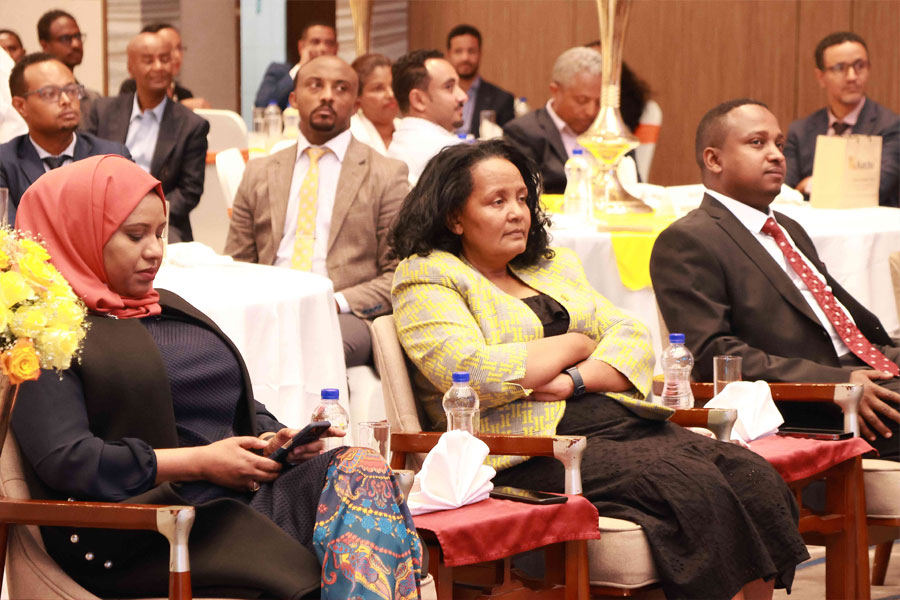
Nov 18 , 2023
By Tsitsi Masiyiwa
The African diaspora is the biggest funder of change on the continent. Since remittances are informal, often unreported, and narrowly targeted, they tend to be overlooked. But their scale is large, sustained by diasporic Africans’ powerful commitment to improve the lot of family members and communities they love. Formal givers like me should not only learn from this, but also seek opportunities to collaborate with the diaspora to strengthen its members’ impact.
In 2022, the 160 million Africans living outside the continent sent home more than 95 billion dollars in remittances. Of that, about 53 billion dollars went to countries in Sub-Saharan Africa, with Nigeria, Ghana, Kenya, and Zimbabwe as the top destinations. This compares with 30 billion dollars in foreign direct investment (FDI) and 29 billion dollars in official development aid for Sub-Saharan Africa.
Notably, FDI and aid declined last year, as global challenges, such as surging inflation and the Ukraine war, caused donors to reduce or redirect their giving. But remittances increased for many of the same reasons: Africans in the diaspora knew that their families and communities were grappling with food insecurity, as well as natural disasters like floods and severe drought. After ensuring that families are fed, remittances are mainly used to fund health and education expenses.
There is a good reason for this: investments in health and education are the best means of putting people on a path toward prosperity. Unfortunately, African countries still face a huge financing gap for human-capital development.
Africa’s health financing gap amounts to at least 66 billion dollars. When it comes to achieving the Sustainable Development Goal (SDG) targets of delivering universal pre-primary, primary, and secondary education by 2030, Sub-Saharan African countries face an average annual shortfall of 70 billion dollars. Remittances will not close these gaps, but they can go further.
Members of the African diaspora have often shared with me their desire to expand their giving beyond their immediate family or community. The problem, they explain, is that they do not know which local organisations they can trust. That is why credible actors should connect the diaspora with community-based organisations that need and deserve support.
Like the diaspora, those running African community-based organisations are often motivated by love for their communities and a deeply held commitment to catalysing lasting change. They have often proved adept at leveraging limited resources to achieve impressive results. But with more funding, community-based organisations could do even more. They often lack the know-how to engage in effective fundraising or reporting – a shortcoming that severely limits their ability to raise funds from structured philanthropies.
The newly created Masana wa Afrika Foundation – of which I am a funder and board member – is committed to helping organisations overcome this weakness, providing them with small grants and tailored support. More efforts of this type are needed. We know the community-based organisations we support are trustworthy and engaged in hugely important work, from supporting disabled children in Lesotho to providing life-saving nutrition to babies in Uganda.
The benefits of such an approach would extend beyond the communities being directly targeted. If the diaspora is doing more to finance cost-effective, community-based projects, big funders and structured philanthropies can focus their attention and resources on tackling larger-scale problems, such as eradicating neglected tropical diseases, closing the gender gap, and improving food security. But truly maximising the impact of remittances requires more data.
Part of why diaspora giving has been overlooked for so long is that little concrete data on inflows and impact are available. We have estimates of the total funds sent to particular countries. But we lack a complete picture of volumes, preferred channels, and frequency. The good news is that the World Bank is already working on filling gaps in the data on incoming remittances. But more robust ways to track and measure the impact of remittances on communities are still needed.
The challenge will be to find ways to capture, collate, and share people’s stories – of children educated, medication acquired, and crops planted thanks to diaspora giving – in a form that can guide decision-making.
Giving by the African diaspora might lack the structure and formality of traditional philanthropy, but it plays a central role in keeping people out of poverty and advancing community prosperity. Given the personal motivations behind it, diaspora finance is support people can count on. If philanthropic organisations commit to enhancing their impact, we might be surprised by what we can achieve.
This article is provided by Project Syndicate (PS).
PUBLISHED ON
Nov 18,2023 [ VOL
24 , NO
1229]


Commentaries | Nov 21,2018

Viewpoints | Jul 27,2019

Radar | Jun 07,2020

Sunday with Eden | Jul 23,2022

View From Arada | Jul 20,2019

Fortune News | Apr 27,2025

Viewpoints | May 11,2019

Radar | Jun 18,2022

Fortune News | Nov 14,2019

Radar |

My Opinion | 131673 Views | Aug 14,2021

My Opinion | 128039 Views | Aug 21,2021

My Opinion | 126001 Views | Sep 10,2021

My Opinion | 123622 Views | Aug 07,2021

Dec 22 , 2024 . By TIZITA SHEWAFERAW
Charged with transforming colossal state-owned enterprises into modern and competitiv...

Aug 18 , 2024 . By AKSAH ITALO
Although predictable Yonas Zerihun's job in the ride-hailing service is not immune to...

Jul 28 , 2024 . By TIZITA SHEWAFERAW
Unhabitual, perhaps too many, Samuel Gebreyohannes, 38, used to occasionally enjoy a couple of beers at breakfast. However, he recently swit...

Jul 13 , 2024 . By AKSAH ITALO
Investors who rely on tractors, trucks, and field vehicles for commuting, transporting commodities, and f...

Jun 28 , 2025
Meseret Damtie, the assertive auditor general, has never been shy about naming names...

Jun 21 , 2025
A well-worn adage says, “Budget is not destiny, but it is direction.” Examining t...

Jun 14 , 2025
Yet again, the Horn of Africa is bracing for trouble. A region already frayed by wars...

Jun 7 , 2025
Few promises shine brighter in Addis Abeba than the pledge of a roof for every family...

Jun 29 , 2025
Addis Abeba's first rains have coincided with a sweeping rise in private school tuition, prompting the city's education...

Jun 29 , 2025 . By BEZAWIT HULUAGER
Central Bank Governor Mamo Mihretu claimed a bold reconfiguration of monetary policy...

Jun 29 , 2025 . By BEZAWIT HULUAGER
The federal government is betting on a sweeping overhaul of the driver licensing regi...

Jun 29 , 2025 . By NAHOM AYELE
Gadaa Bank has listed 1.2 million shares on the Ethiopian Securities Exchange (ESX),...